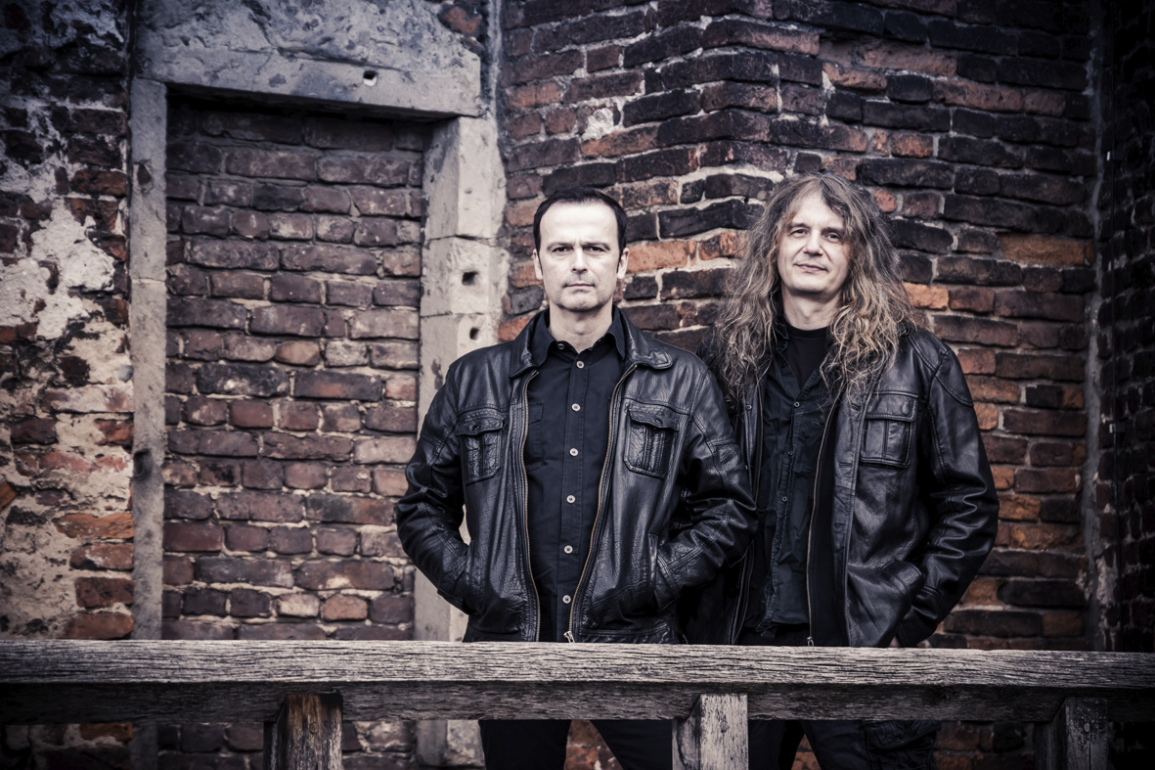(Yazının Türkçe versiyonunu buradan okuyabilirsiniz.)
Blind Guardian’s 23-year-old “orchestral project” Legacy of the Dark Lands was released on last Friday. During this 23 years, Blind Guardian released five studio albums, two concert albums, one live DVD and they performed numerous live shows. The orchestral album was supposed to be released at the beginning of the 2000s, however the band gave the priority to their regular albums and thus this project was postponed many times. Since 2010, the band started working with the Filmharmonic Orchestra Prague for their albums At the Edge of Time and Beyond the Red Mirror and hence they made a good progress. And finally, the waiting is over.
Legacy of the Dark Lands is not a regular heavy metal album. It was released under the name of Blind Guardian Twilight Orchestra and the band sees it as a side project. The album was recorded with a philharmonic orchestra without using any metal instruments. It also includes narrations in between the songs and hence it is a very special and original piece of art. It is more like a classical album, a soundtrack or even an opera rather than a metal album.
All music was written by André Olbrich and Hansi Kürsch. Classical scores and orchestration were done by Matthias Ulmer who has worked with the band for many years. The story of the album was written by Hansi Kürsch and German fantasy author Markus Heitz as a sequel to Heitz’s novel Die Dunklen Lande (The Dark Lands). The narration parts in between the songs were performed by voice artists some of whom are familiar from the band’s legendary album Nightfall in Middle-Earth.
As Blind Guardian fans knows, one of the most distinguishing aspects of the band is their talents in storytelling. They have written many beautiful songs on numerous books and movies until now. The best one among them is their album Nightfall in Middle-Earth (1998) which was based on the stories related to the Noldor on J.R.R. Tolkien’s renowned work Silmarillion. The band made the story whole with the help of spoken and lyrical parts nicely placed between the songs on Nightfall in Middle-Earth. Eventually, Hansi Kürsch took everything into his own hands and started writing his own stories. Beyond the Red Mirror (2015) is a concept album written as a sequel to a certain theme he used on one of their earlier albums Imaginations from the Other Side (1995). Therefore, epic concept albums are very familiar for Blind Guardian fans.
Legacy of the Dark Lands tackles with The Thirty Years’ War, fought between 1618-1648, on a fantasy setup. The main character of the story, Nicolas, is a mercenary who loses his memory and finds himself on a battlefield after being cursed by his brothers and sent to Earth. At the same, Nicolas is the First Horseman of the Apocalypse. As the album progresses, we witness him discovering his true identity and his efforts to prevent the other three horsemen, who represent war, famine and death, and avert the apocalypse and thus the fall of mankind. In a nutshell, Heitz and Kürsch turn a historical event into a supernatural story. I think presenting The Thirty Years’ War with a metaphor of apocalypse is a befitting idea. This war turned into a horrible carnage together with famine and diseases like typhus and plague it triggered. Historians estimate that eight million people died and nearly fifty percent of population was lost in some parts of Central Europe throughout the war. Crop failures and resulting famine made people vulnerable to diseases. The Early Modern European society which lacked scientific knowledge to explain these disasters attributed everything to supernatural forces and this led to a major outbreak of witch hunting. Thousands of people were accused of witchcraft and were exposed to unprecedented tortures and burnt at stakes. As the book of Heitz and the album narrate this violence in a fantasy setup, they give many references to historical facts. The references to Descartes and The Enlightenment on the first single “Point of No Return” (“I think therefore I am, I’ll enlighten you”) and the emphasis on free will and The Scientific Revolution (you can see Johannes Kepler as a side character on the album) at various parts on the album are among them. As a historian, I appreciate the citations taken from different primary sources and placed at the ends of chapters of the book. I also appreciate the anti-war position of the album. On “War Feeds War” (“This pain is endless, this world’s insane / This war is fed by war since faith is in love with hate”) one can sense the implication to the fact that The Thirty Years’ War started as a religious conflict. And the album closes with the question “The battle’s won, but will there be peace?” on “Beyond the Wall” and hence, in a way, reaches to the conclusion of “there are no winners in war”. Again we see that Blind Guardian prefers to enrich their work with philosophy, history and mythology and to give significant messages to their audience in between the lines unlike some metal bands which praise war.
And the musical aspect of the album… The 23-year-long history of the album increased the expectations without doubt. On my behalf, my expectations got higher with the releases of the two singles and the trailer videos. The higher the expectations, the bigger the disappointment might have been the case. However, I admired Legacy of the Dark Lands immediately and it grew more in me in that last week. I think this album is the most brilliant work created by André Olbrich and Hansi Kürsch. The fact that a heavy metal band created an album to be recorded fully with an orchestra is a praiseworthy effort in itself. You can see that this album is a product of a great attention and punctiliousness on every song and every narration part. It’s not an album you can memorize after a few listens. It’s an album that will amaze you with many tiny details each time you listen to it. Each song takes you from shallows and drags you into depths of an ocean over gigantic waves. You can’t guess what will happen next. With its indistinct, or non-present, chorus parts and atypical song structures, this album might take you to mountain tops while you think you are walking on a peaceful meadow and roll you from steeps down into hell. Hansi Kürsch’s transcendental vocals are as responsible as – maybe more than – the orchestra and huge choirs for that rush of emotions. At some moments, Kürsch’s voice surpasses the splendour of the orchestra. You can do nothing but admire when you hear how easily he can reach high notes and how wide his vocal range is especially on “In the Underworld”, “In the Red Dwarf’s Tower” and “Beyond the Wall” with a Leonard Cohen-like intro. I can easily say that Kürsch’s vocals on this album are better than his earlier works. He is at the top of his abilities as a metal vocalist and his talent in using his voice artistically. He turns into the characters he impersonates. The vocal lessons he took over the years and his diligence as a serious musician have a big share in this success. At this point, I’d like to point out that André Olbrich is a very talented, hardworking and meticulous musician as well. On a recent interview he talks about how he wrote “Beyond the Wall”: “For me the biggest challenge has been the last one, ‘Beyond The Wall’. When we had almost all the songs finished, Hansi told me that we needed a great ending for the album. He insisted that it was missing, there was no great ending, no song was appropriate to be the grand finale. So, I tried to compose a theme with everything I had learned over the years, starting with something slow and from there building something that would grow and reach a great climax at the end. And I could do it, I managed to compose something that I had been asked for, and that has been my biggest challenge on this record. I think I succeeded because I managed to get that great ending and Hansi was very happy with the subject. Everyone has said that it is the perfect ending to the album, so I think I have done a good job as a composer. I am glad to have learned so much over the years to have been able to do this.”
Throughout its 35-year-old history, Blind Guardian has never repeated itself. The members of the group always searched for something new. They were nourished by not only heavy metal but also various different genres. And Legacy of the Dark Lands is the highest point of this open-mindedness and creativity: A pure orchestral album by a heavy metal band. Legacy of the Dark Lands is a fascinating piece of art that can’t be categorized easily. As every other unclassifiable work, it will take some time to be fully appreciated.
Cover photo: Dirk Behlau



